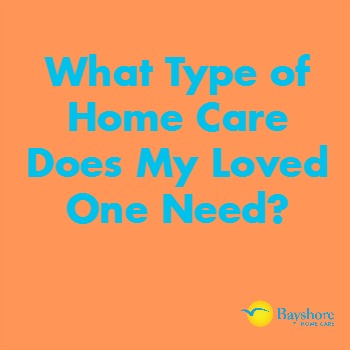Home care can be confusing, especially for someone who has never been through the process before. In order to determine the most appropriate care for your loved one, ask them to fill out this questionnaire.
- Can I ensure I am receiving proper nutrition?
- Can I bathe myself adequately and safely?
- Can I transfer positions from laying, to sitting to standing?
- Can I move around my home without trouble (ie fear of falling, navigating stairs)?
- Can I manage my medications alone?
- Have I recently lost someone dear to me or someone that helped care for me?
- Am I incontinent?
- Do I need assistance with transportation?
- Have I had a recent fall?
- Have I had a recent hospitalization or rehabilitation stay?
- Do I have a wound that I cannot care for alone?
- Do I have trouble swallowing or speaking?
- Do I have trouble transferring positions from laying, to sitting to standing?
- Do I need an aide (cane, walker) to walk?
If you answered “no” to two or more of questions 1-5 and ‘yes” to one or more of questions 6-10, you could benefit from private duty home care. This type of home care can be provided by a fully licensed home health agency or a nurse registry. To find out the differences between these two care options click here. Private duty home care services are provided by either a Certified Nursing Assistant or a Home Health Aide. These professionals have completed a course to provide hands on care as well as maintain continuing education credits. This type of home care agency can provide assistance with all activities of daily living (ADLs) which include; bathing, dressing, toileting, transferring and feeding. They can also provide companionship for seniors who may be lonely and services like grocery shopping, meal preparation, and transportation. Private duty home care is available from 1-24 hours per day. There is no maximum length of time private duty home care services can be received. This type of in home care is financed either out of pocket or through long term care insurance.
If you answered “yes” to three or more of questions 9-14 you could benefit from skilled home care. Skilled home health care includes services like speech therapy, occupational therapy, physical therapy and wound care. Skilled home health is paid for by Medicare or private insurance companies. Because of this, you must obtain a physician signed order in order to receive these services. Skilled home health services are usually provided for 1-2 months depending on your diagnosis. Typically, if someone is in need of skilled home health services they are also in need of assistance with activities of daily living. Private duty and skilled home health care services do not necessarily need to be used in conjunction with each other but their services complement each other well.

